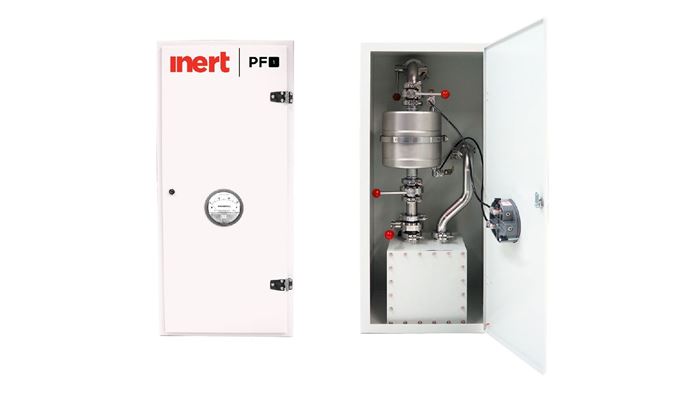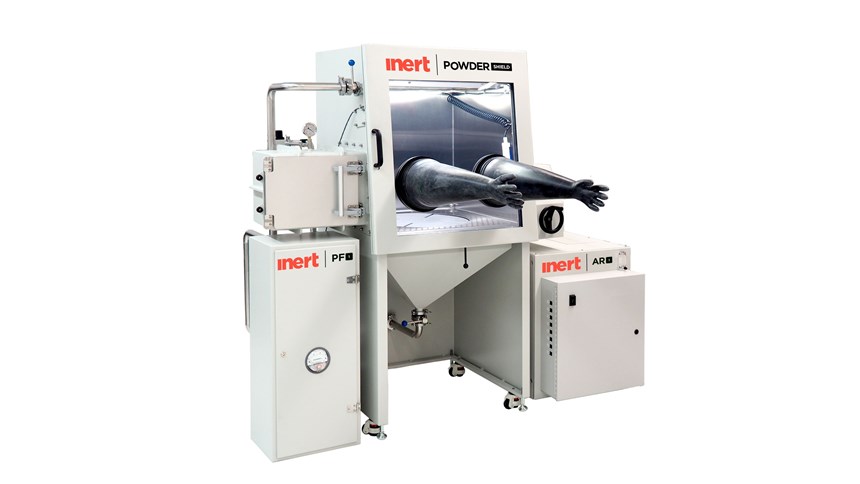Inert's PF-1 Powder Filtration System Enables Safe Handling
Rapid 2018: The closed-loop filtration system enables the safe postprocessing and handling of 3D-printed metal parts.
Share
Read Next
Inert displays its PF-1 powder filtration system, integrated with a PowderShield enclosure and Argon-2 gas management system. Working in a closed-loop configuration, these systems enable additive manufacturers to safely postprocess metal 3D prints; reclaim and reuse costly metal powders; maintain a strict O2 and H2O argon gas atmosphere of less than 1 ppm; and facilitate other sensitive powder-handling and 3D printing processes.
The powder filtration system is equipped with safety features such as a quad HEPA filter cluster to collect reactive powders, water passivation of particulate, isolation valves and an electrically grounded design that prevents static electricity buildup or potential ignition of particles. Other features include an easily accessible lockable cabinet, stainless steel piping, 60-cfm blower, and magnehelic gage to display pressure and indicate when the filter needs replacement.
The PF systems are available in a variety of models that can be tailored to different needs. PF-1 is said to be well-suited for removing soot created as a byproduct of laser welding or 3D printing. PF-2 has a higher maximum flow rate for larger industrial additive manufacturing processes, and PF-3 contains a ceramic filter that can be safely used with higher temperatures.
Related Content
-
Copper, New Metal Printing Processes, Upgrades Based on Software and More from Formnext 2023: AM Radio #46
Formnext 2023 showed that additive manufacturing may be maturing, but it is certainly not stagnant. In this episode, we dive into observations around technology enhancements, new processes and materials, robots, sustainability and more trends from the show.
-
DMG MORI: Build Plate “Pucks” Cut Postprocessing Time by 80%
For spinal implants and other small 3D printed parts made through laser powder bed fusion, separate clampable units resting within the build plate provide for easy transfer to a CNC lathe.
-
Freeform: Binder Jetting Does Not Change the Basics of Manufacturing
Rather than adapting production methodologies to additive manufacturing, this Pennsylvania contract manufacturer adapts AM to production methodologies. In general, this starts with conversation.













